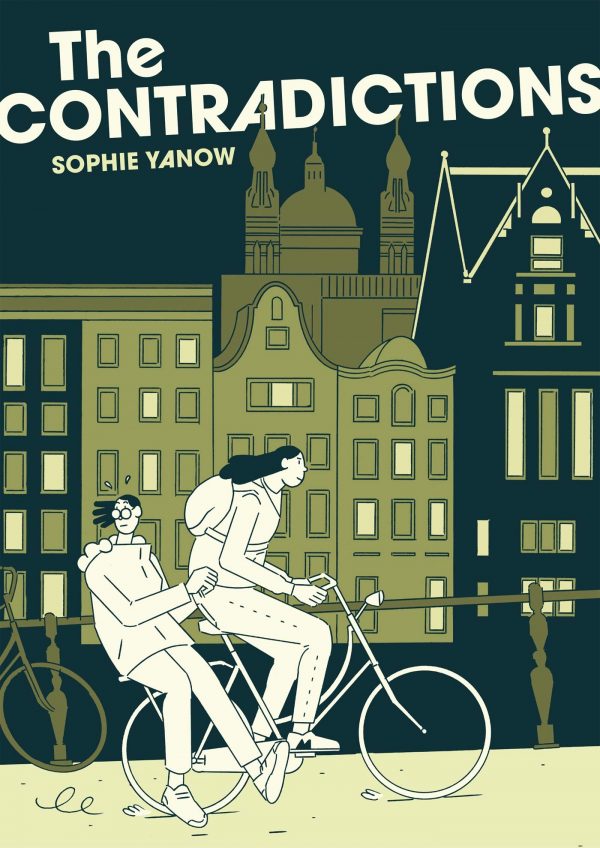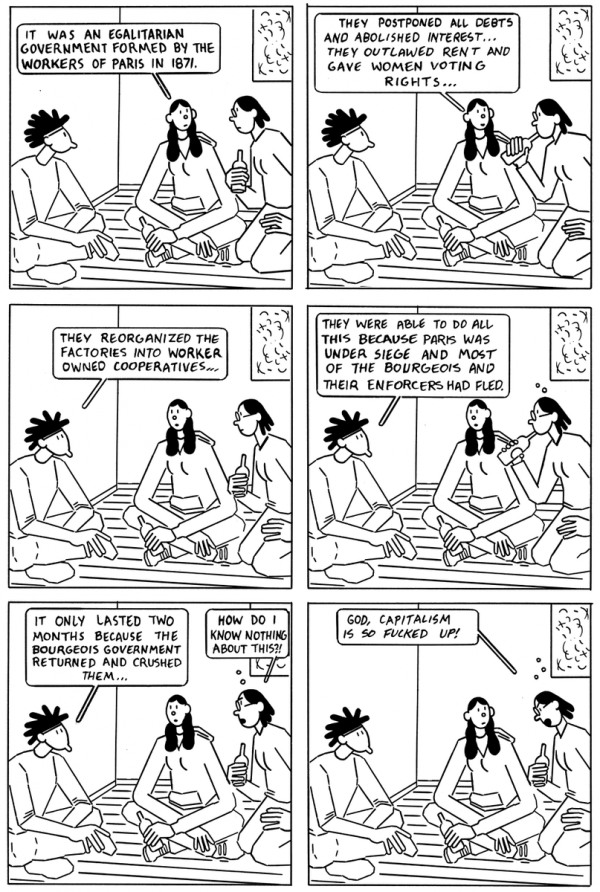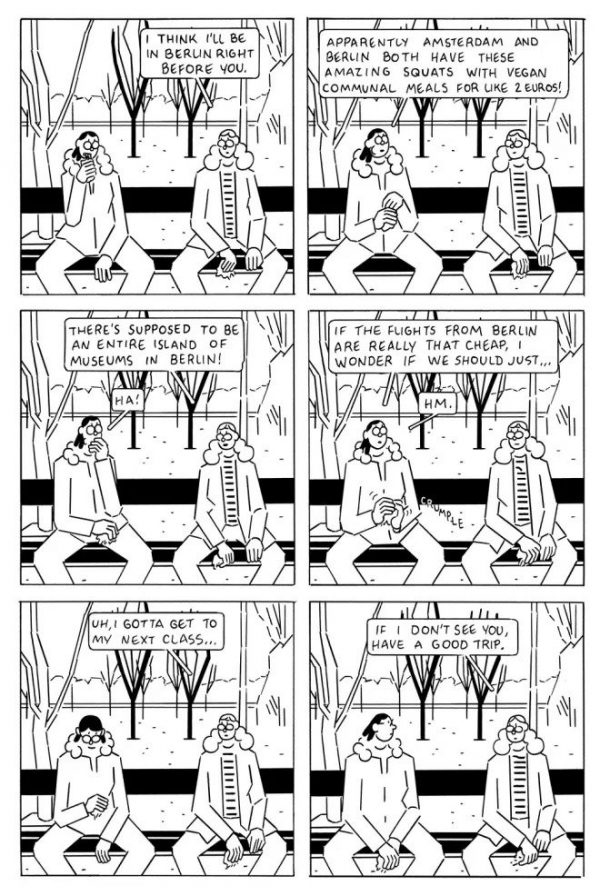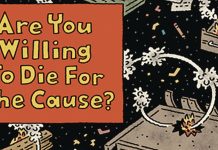The Contradictions
By Sophie Yanow
Drawn and Quarterly
For the past decade or so I’ve noticed a shift where the colloquial word styles of young people had started to sound like they were lifted from rambling, pot-infused blather coming out of their socialist undergrad professors who had lost a fervor for life but still clung to the words they used when they still had it. Solidarity, for instance. Intersectionality. Problematic. Facilitate. Agency.
You know what I mean.
What they all signify is great, but to hear so many of them cluttering up sentences is hell on the ears. Use them too frequently and they get classified as buzzwords, which aside from any other meaning is a way of saying that people use them too much to represent certain ideas. Buzzwords are a form of laziness, and though in this context they may be signifiers of solidarity, they can also be an indicator that maybe the person using them is relying less on their own ideas and the personal expression of them and more on a list of radical talking points that, to circle back, begin with professors stuck in the stifling and often stagnant bubble of academia. Of course, their language never evolved, but sheesh.
All these words that have been taken to heart and used way too often typically swirl around one very important word, a buzzword word that signifies political progressivism and true change, and does so in a context that becomes more heightened and exciting and possible relative to the youth of the person embracing the word as part of their life’s goal — revolution. It’s a buzzword signifying an expansive alternate way of living driven by political idealism and a counter-bourgeois, proto-anarchic approach to life that is as well-meaning as it is self-defeating when it becomes a point of separation from culture rather than engagement.
All this weighed heavily on my brain as I read Sophie Yanow’s memoir of trying to find her place in the world, The Contradictions. During a stint in Paris during her college years, Yanow begins to explore further the allure that radical culture has for her, eventually drifting away from a social group that had begun to coalesce initially and falling in with a crowd that seems more exciting to her. It’s a group that appears to personify the very allure that she’s taken to heart.
Leaping to the front of her attention is Zena, who goes into rapid-fire radical-term dropping around Yanow — anarchist organizing in Paris, political actions that filled her calendar at home, squats, shoplifting, illegalism — that swerves an anemic ex-vegetarian like Yanow into veganism out of “solidarity” with Zena.
This last bit comes into play when Zena talks Yanow into a hitchhiking trip for spring break that means a lot of time in cars with strangers and the slow realization that Zena may not be the ideal traveling companion that Yanow hoped she would be. Yanow still has some hopes to see some of the things in Europe that a typical traveler would want, but Zena’s itinerary doesn’t leave a lot of time for that, and spring break becomes an exercise in survival. Yanow’s pledge to veganism for Zena even makes it difficult to just grab something to eat when she’s starving.
Readers with a well-developed bullshit meter will probably notice Zena registering pretty strongly early on in The Contradictions.
In the backdrop of Yanow’s travel experience is the reality of finances. She is just coming to realize that the money that pays for her school comes from loans and that even though she disagrees with capitalism, money still has a presence in her existence that she takes seriously. Zena, on the other hand, shoplifts for the things she wants — I would say in a “performative” way, that’s another one of those academic words you see everywhere — and disdains matters like paying her rent on time, thus dismissing the very real concerns of her roommate.
Zena’s presentation of a radical “collectivist” culture reveals, at least in her corner of it, a selective view of whom should be included in its concerns — if her roommate doesn’t adhere to them in the same way, then her roommate is disdained for her views about getting evicted. Zena becomes an example of the problem the book’s title, The Contradictions, refers to, that with any philosophy — political, social, religious, whatever — there are going to be aspects of the real world and the individuals in it that don’t fall into line with the philosophy. This can make anything a shallow principle and can transform meaningful actions into rote ones.
What this adds up to for Yanow is a call to not find her place within someone else’s views, but instead to shape her own and develop a way to best express them and also reflect her own principles. Books are fine, academic guidance is fine, but if you become a collection of buzzwords that signify the ideas of others rather than an expression of your own principles, then you’re just a cog in a system, albeit in this case, a radical one.
It’s a nuanced point that Yanow makes here, all with far less judgment than I’m handing out, but she does so engagingly and that’s what makes The Contradictions personable and wise. She presents herself in a genuine way without beating readers over the head with what the drama means as it unfolds. It also invites you to align your own experiences with those she presents during that period of time where we’re trying to differentiate ourselves by trying to find a place where we belong.












